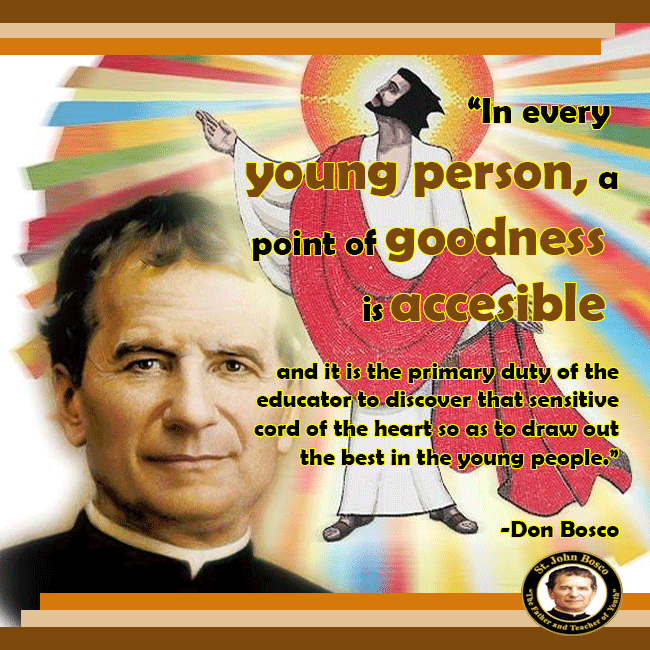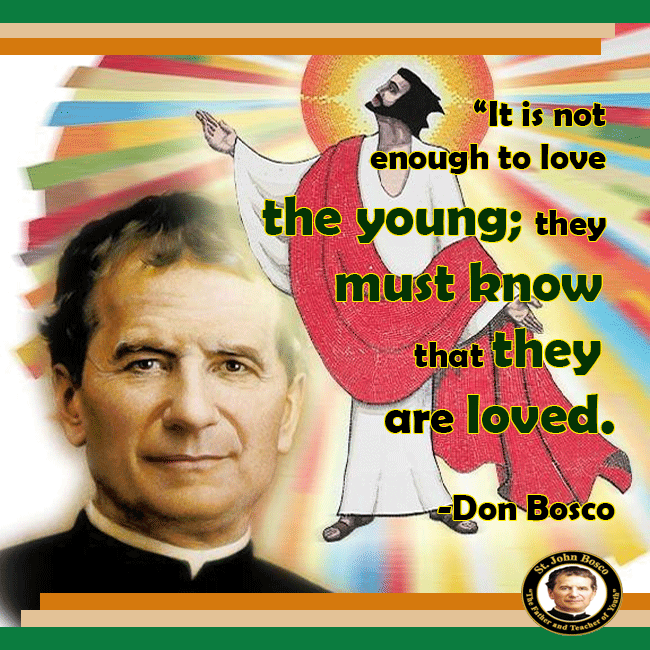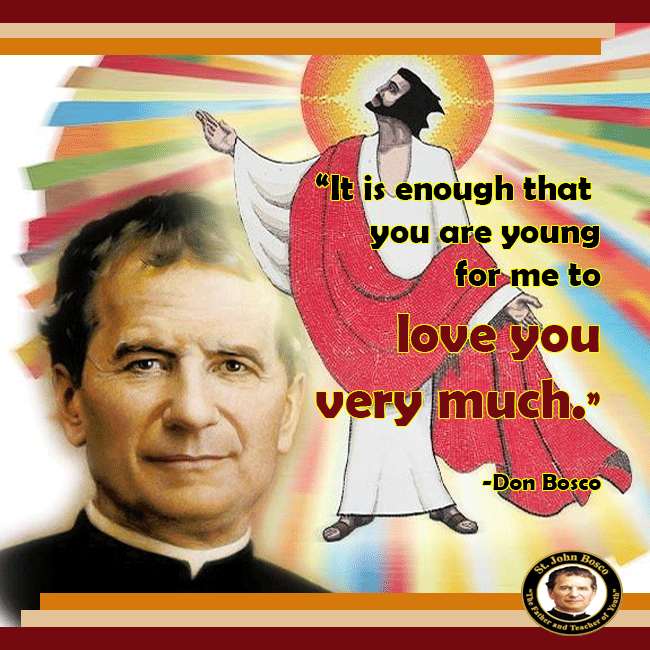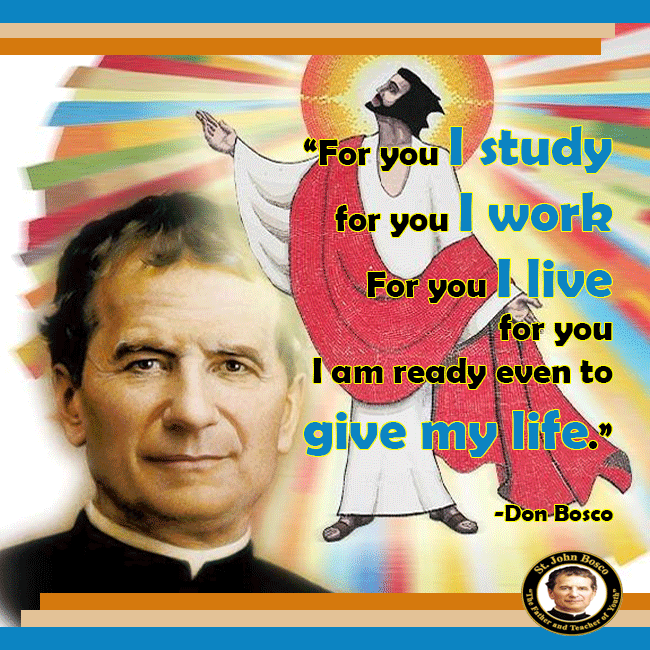





Saint John Bosco, lovingly known as Don Bosco, was born in Turin, Italy, on August 16, 1815. He came from a humble family of poor farmers. When John was only two years old, his father passed away, leaving his mother, Margaret Occhiena, to raise him and his brothers alone. Despite the hardship, Mamma Margaret instilled in her children a deep faith in God, honesty in work, and love for others.
From an early age, John displayed great intelligence, energy, and compassion for his peers. He loved to gather other children to play games, tell stories, and pray together. Even then, he showed signs of the future priest and educator he would become. His heart was drawn to the service of God and the poor, but he kept his dream of becoming a priest to himself, knowing how difficult it would be for his poor family to afford seminary education.
Through God’s providence, John met a holy priest, Saint Joseph Cafasso, who recognized his vocation and helped him enter the seminary. While studying for the priesthood, John worked tirelessly to support himself, learning many practical trades such as carpentry, shoemaking, tailoring, cooking, and farming. These skills later became valuable tools in his mission to train and uplift poor and abandoned youth.
In 1841, John Bosco was ordained a priest. With a heart filled with zeal and compassion, he began his ministry in Turin, a city burdened by poverty and industrial change. He devoted himself to helping homeless and neglected boys, teaching them not only how to make a living but also how to live with dignity and faith. He created a welcoming place where they could pray, study, and learn trades — a home where they were loved and guided. By 1850, over 150 boys lived under his care, assisted by his mother, who lovingly served as housekeeper and mother figure to them all.
Don Bosco’s approach to education was rooted in love, reason, and religion — what he called the Preventive System. Instead of punishment, he believed in guiding the young with kindness and understanding, helping them to realize their potential as children of God. Though misunderstood and criticized at first, his patience and unwavering faith gradually won the hearts of many.
He often asked his boys, “Do you want to be Don Bosco’s friend?” When they said yes, he would reply, “Then you must help me save your soul.” He encouraged them to pray the Three Hail Marys every night and to frequent the sacraments of Reconciliation and Holy Communion. Among those who were deeply formed by his guidance was Saint Dominic Savio, a young student who, through Don Bosco’s mentorship, also attained sainthood.
To continue his mission, Don Bosco founded the Society of St. Francis de Sales, known today as the Salesians, named after the gentle and devout saint who inspired him. Later, with Saint Mary Mazzarello, he founded the Daughters of Mary Help of Christians (Salesian Sisters) to serve and educate young girls.
Don Bosco passed away peacefully on January 31, 1888. His funeral in Turin drew thousands of people — a joyful and tearful thanksgiving for a life wholly given to God and to the salvation of souls. On Easter Sunday in 1934, Pope Pius XI, who had known him personally, canonized him as Saint John Bosco.
Today, Don Bosco’s legacy continues in Salesian schools, parishes, and youth centers around the world. His life reminds us that holiness can be lived joyfully, and that one person’s faith-filled love can transform countless lives.
May we, like Don Bosco, be instruments of God’s compassion — reaching out to the young, the poor, and the forgotten with patience, cheerfulness, and hope.